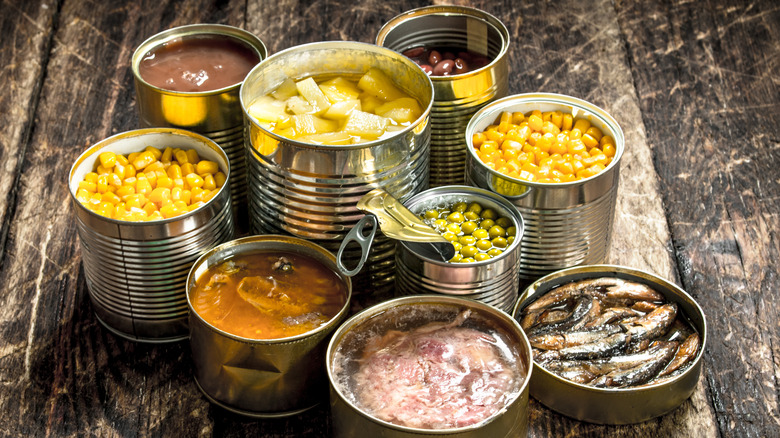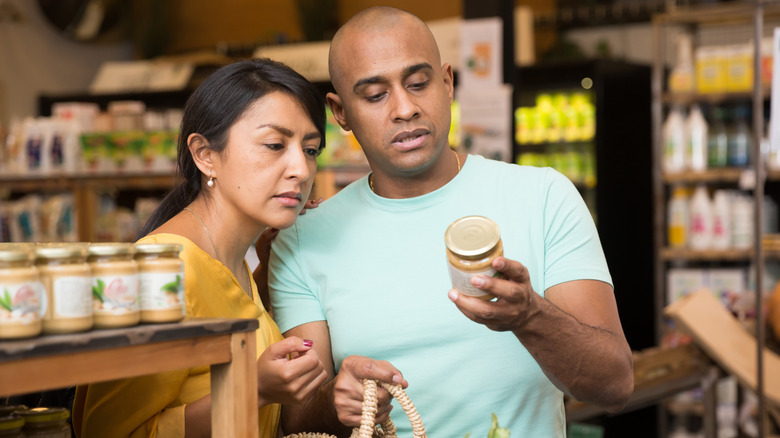Is Canned Food From The Early Pandemic Still Safe To Eat?
When COVID-19 hit, there were understandably many people that were worried about the potential impact of the disease. From how sick we could get to when there might be a cure, we were worried about the safety of our future. This panic caused droves of people in the U.S. to stockpile items like toilet paper and canned foods. In fact, so many grabbed this type of food that manufacturers are still facing a shortage of aluminum today (via Quartz).
While hoarding rolls of toilet paper might have seemed a bit confusing at the time, buying up canned goods made more sense. This type of food lasts longer than fresh produce and can even provide more nutrients. Healthline reports that some vitamins are sensitive to heat and can be lost when they are cooked or stored at home. However, the outlet notes that throughout the canning process that other antioxidants may increase, like that found in corn and tomatoes. But how long can we truly save these types of canned goods before they go bad?
These types of food can last a long time
If you've heard canned goods can last forever, that's not exactly true, but they do last a very long time. The USDA said they can last for years as long as they are in good condition — meaning they have no rust, dents, or swelling present. However, if this is true, you might be wondering why so many of these cans have expiration dates on them. Inside Edition did a deep dive into canned foods bought during the pandemic and found that many of them are still perfectly fine to eat, as long as they were stored in a cool temperature.
Blogger for She's In Her Apron, Kimmy Hughes, has made a name for herself stockpiling a variety of food and explained the "best by" date on a can doesn't always indicate that it's past the expiration date. Inside Edition even did a taste test on a can of old cranberry sauce that she had in her pantry with a best by date of May 2020. "We found that the contents of the older cans were perfectly fine," said President of Food and Regulatory IEH Laboratories, Donald Zink. "They were suitable for consumption."

